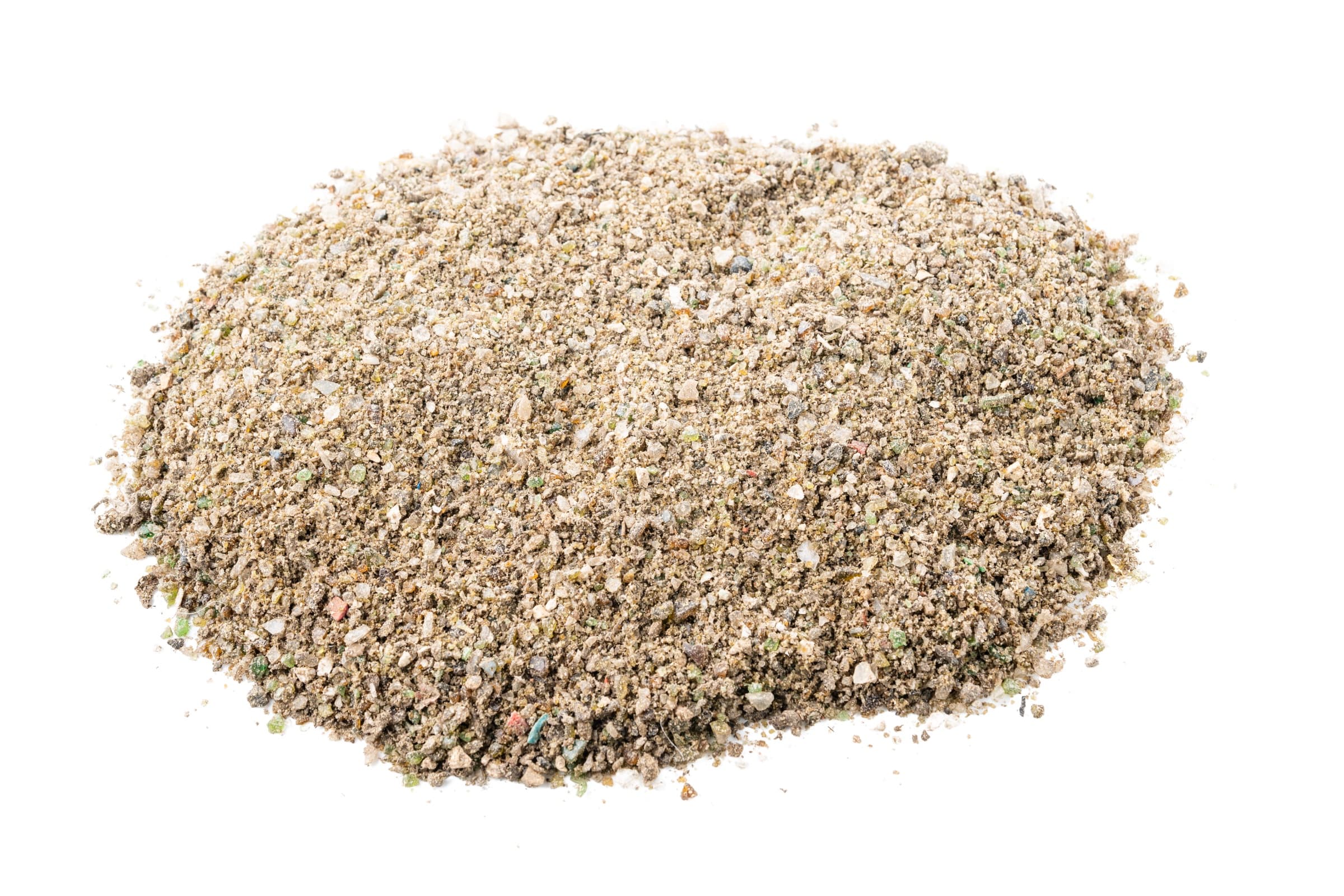Recycled sand frequently undergoes meticulous processing and treatment procedures tailored to adhere to precise criteria and prerequisites pertinent to its utilization in these designated applications. It stands as a sustainable alternative that not only diminishes the strain on natural resources but also furnishes a practical construction material.
This is a natural product, and colour variations may occur between batches. We recommend taking delivery of the full job requirements at once to minimise colour differences.
Central considerations regarding water services recycled sand encompass the following:
Origin: Typically derived from a diverse array of construction and demolition operations, encompassing activities like excavations, roadworks, and building demolitions, recycled sand finds its source in these varied endeavours.
Processing: Following its initial procurement, recycled sand is subjected to a comprehensive processing regimen. This regimen is designed to systematically eliminate contaminants, debris, and impurities, thereby ensuring compliance with the mandated quality benchmarks. These measures are indispensable in guaranteeing the sand’s suitability for integration into water infrastructure projects, where water quality and environmental standards are of paramount importance.
Applications
WSA Recycled Sand offers several applications in water infrastructure projects and utility installations thanks to its sustainable and environmentally friendly nature.
Water services recycled sand is an excellent bedding material for pipes in water infrastructure projects. It provides crucial support and facilitates load distribution to the buried utilities. Additionally, its design allows for proper drainage, ensuring optimal performance and longevity.
After the installation of pipes, WSA Recycled Sand can be used as a backfill material in trenches. Proper compaction during the backfill process is essential, as it ensures the stability and protection of the pipes, contributing to the overall reliability of the underground infrastructure.
WSA Recycled Sand, sourced from diverse construction and demolition operations, undergoes rigorous processing to remove contaminants and impurities. This meticulous treatment ensures compliance with stringent quality standards, making it a sustainable and practical choice for water infrastructure projects. By incorporating recycled sand, these initiatives gain a reliable construction material and contribute to the responsible use of resources and the preservation of the environment.
Consider the following points when using WSA Recycled Sand for water services projects:
Quality Assurance: Ensure the recycled sand meets the quality standards and regulatory approvals required for water infrastructure applications.
Testing and Quality Control: Implement robust testing and quality control procedures to verify that the recycled sand meets the performance criteria specified for its intended uses.
Adherence to Guidelines: Recognize that using recycled materials, including sand, may be subject to specific guidelines or limitations dictated by local regulations and project specifications. Collaborate closely with regulatory authorities and engineering experts to ensure full compliance.
Expert Consultation: When contemplating using water services recycled sand, seek guidance from professionals well-versed in utility installations, construction materials, and environmental regulations. Sound selection, rigorous testing, and effective management of recycled sand are integral to fostering sustainability and achieving success in water infrastructure projects.
Benefits
The advantages of utilizing WSA Recycled Sand are as follows:
Promotes Sustainability: Incorporating recycled sand into projects aligns with sustainability goals, as it diminishes the demand for extracting and depleting virgin materials, thereby reducing environmental impact.
Resource Conservation: WSA Recycled Sand actively conserves precious natural resources and mitigates the environmental repercussions of mining and processing new sand.
Cost-Effective Solution: In specific scenarios, recycled sand is a cost-effective alternative to traditional bedding sand, particularly when considering the cost savings from reduced disposal fees for construction waste.
Local Sourcing: Recycled sand is often readily available locally, facilitating shorter transportation distances. This reduces logistical complexities and minimizes associated emissions, promoting a more eco-friendly approach to sourcing materials.
Products
More like this
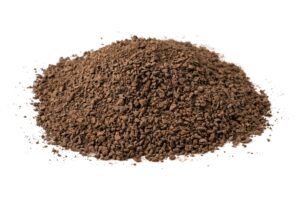
WSA361 Embedment Material 5mm
5mm embedment material is a manufactured material derived from the crushing and screening of non-sedimentary quarried rock.
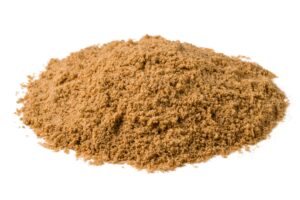
Fine Washed Sand WSA 360 Pipe Embed (Power/Gas)
Used in the context of gas pipelines, specifically for supporting and stabilising the pipelines rather than gas extraction
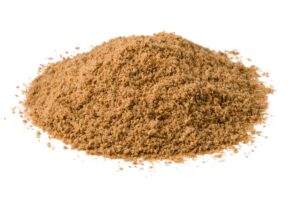
FCR 5mm WSA PS 361
Fine crushed rock, characterized by its 5mm particle size, finds versatile utility in construction, landscaping, and infrastructure. Its diminutive particle size facilitates a higher degree of compaction and tight packing, rendering it...
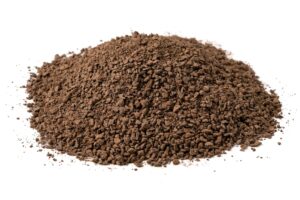
Bedding Sand WSA PS 361
Often referred to as “5mm bedding,” involves using a specific size of crushed rock or aggregate with particles ranging from dust-sized up to 5mm in diameter as a support layer for pipes.
...
Bedding Sand WSA PS 360
“Water Services Approved Bedding Sand” (often referred to as WSA bedding sand) is a type of sand that meets specific standards and requirements for use in water infrastructure projects, particularly those related to the...
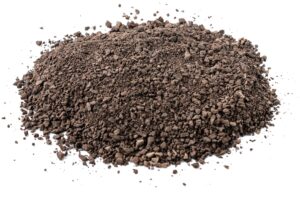
10mm WSAA PS 362
10 mm Crushed Rock is known as the premium choice for Pipe Embedment in the construction sector. Providing robust support for pipe bedding and backfill and adequate drainage for utilities, sewers and various construction needs. WSAA...

Case
studies
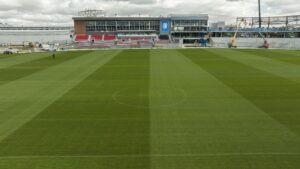
Normark
Established in 1977, Normark are a second generation family business specialising in landscape design and construction across Melbourne. "From inner-city Melbourne courtyards to large commercial open spaces, Normark will deliver."

Normark
Established in 1977, Normark are a second generation family business specialising in landscape design and construction across Melbourne. "From inner-city Melbourne courtyards to large commercial open spaces, Normark will deliver."

Normark
Established in 1977, Normark are a second generation family business specialising in landscape design and construction across Melbourne. "From inner-city Melbourne courtyards to large commercial open spaces, Normark will deliver."

Normark
Established in 1977, Normark are a second generation family business specialising in landscape design and construction across Melbourne. "From inner-city Melbourne courtyards to large commercial open spaces, Normark will deliver."

Normark
Established in 1977, Normark are a second generation family business specialising in landscape design and construction across Melbourne. "From inner-city Melbourne courtyards to large commercial open spaces, Normark will deliver."

